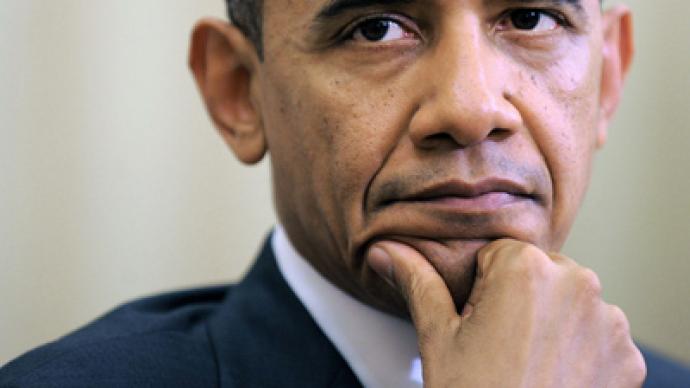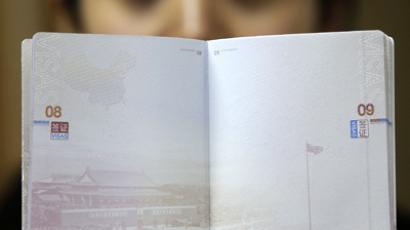Chinese mogul sues Obama

President Obama this year ruled against allowing a Chinese man to build a wind farm in Oregon, calling him a ‘national security threat’. Convinced that the president was biased against the Chinese, the man is taking Obama to court.
Wu Jialiang, CEO of Ralls Corp. and one of China’s richest men, is challenging Obama in a federal court today on his refusal to let him build a wind farm on US ground he had purchased – even though other foreigners had built businesses in the same area, the Christian Science Monitor reports.“We are suing the president because we do not accept his finding that we are a national security threat. It is not true,” Jialiang said.Ralls Corp. is affiliated with Sany Group Ltd., one of China’s largest and wealthiest private companies with its president ranking as the sixth richest man in China. The company bought four plots of land in Oregon on which it planned to build a wind farm in March. But the Committee on Foreign Investment in the United States (CFIUS), which reviews foreign purchases, blocked the deal, claiming the agency found “credible evidence” that this was a national security risk – especially with its close proximity to a military facility where unmanned drones are tested.After Ralls Corp. disputed the decision, President Obama issued an executive order enforcing the CFIUS ruling. This was the first time a US president used his power to block a business transaction on security grounds in 22 years.Angered by the decision, Sany Group Ltd. filed a complaint against Obama and the CFIUS at a District Court in Washington, claiming that the presidential order exceeded its constitutional rights, since it provided no detailed evidence as to why Ralls Corp. was a national security threat. The company has made numerous investments in Europe, and 15 percent of its total sales are made overseas. Jialiang also expressed frustration with the financial loss his company faced when the executive order was made.“This measure caused us more than $20 million in direct investment losses, excluding indirect losses,” Jialiang said in a press conference in Beijing.The district court judge is now reviewing the case to decide whether or not to accept it. Sany Group Ltd. has threatened to take the case to the US Supreme Court if its complaint is rejected, Forbes reported in mid-November.Although both Chinese and US lawyers find it unlikely that the Chinese company will win the lawsuit against Obama, the case represents China’s increasingly intrepid relationship as a challenger of the US. The case also displays US hesitation to allow Chinese competition on American soil. Chinese investors have frequently complained about US hostility towards them.“When you challenge the Titan, the US, you appear a hero,” Hao Junbo, an expert on transnational legal cases, told the Christian Science Monitor.As China becomes a greater competitor and world power, the US has felt weary about allowing big Chinese investors to bring their businesses to the US for many reasons similar to the country’s former relationship with Japan and Korea.In the 1980’s, Japan was a rising economic challenger. When the Japanese bought the Rockefeller Center, an enormous American symbol and huge investment, Americans worried that the Japanese were trying to undermine them in the business world. Many of Japan’s products were also superior to those produced by the US.But Japan was also a US ally and had no interest in dominating the world politically. The country’s main concern seemed to be selling its products and bringing in cash. Fears about Chinese dominance, on the other hand, are more than just economic. Americans are concerned that China may try to dominate with its political ideologies, which are radically different from Western beliefs. While Japan was not much of a military threat, China’s military power is rising and the country often intervenes in global affairs. Its neighbors have become fearful of the rising power. China has also supported countries that US considers threats or enemies, such as North Korea.China is not just an economic competitor, but a political and military one as well. US fears of Chinese investors are just one indicator of the perception of threat. Jialiang’s company was not the first whose investment was rejected without much of a valid reason: a congressional panel last month branded two Chinese telecommunications companies as potential threats to national security. Huawei and ZTE will now face immense difficulties conducting business in the US.“The US government and people do not think the Chinese government is 100 percent like other ones. They always have doubts; it is cultural and political discrimination,” said Hao Junbo, an expert on transnational legal cases.Jialiang’s fierce confrontation against President Obama is likely to shed light on the US perception of China.“This could well be an indication of things to come when Chinese investors will stand up if they feel they have been badly treated. One could argue that this is a straw in the wind,” Dr. Karl Sauvant, author of the book “Is the US Ready for FDI from China?” told the Christian Science Monitor.














